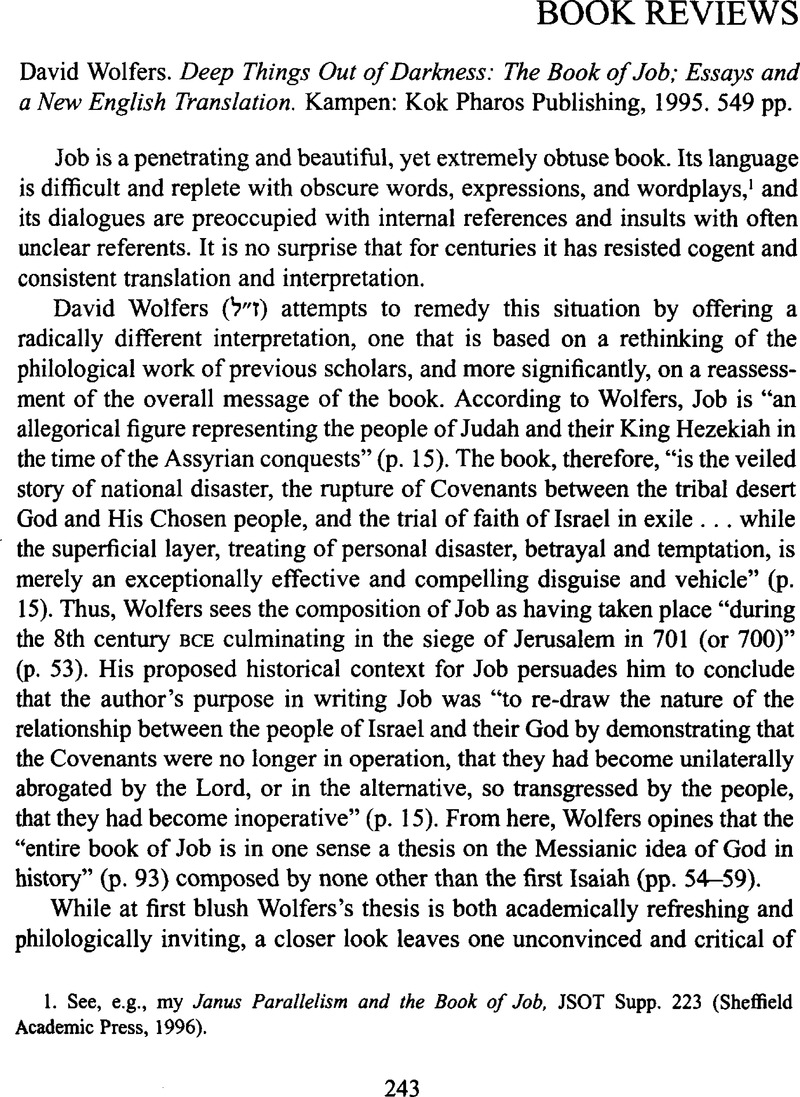Published online by Cambridge University Press: 15 October 2009

1. See, e.g., my Janus Parallelism and the Book of Job,JSOT Supp. 223 (Sheffield Academic Press, 1996).Google Scholar
2. Weinfeld, Moshe, Deuteronomy and the Deuteronomistic School(Oxford: Clarendon Press, 1972).Google Scholar
3. See, e.g.,Olyan, Saul M., “Honor, Shame, and Covenant Relations in Ancient Israel and Its Environment,” Journal of Biblical Literature 115(1996): 201–218.CrossRefGoogle Scholar
4. Kimelman, Reuven, “Rabbi Yohanan and Origen on the Song of Songs: A Third-Centuiy Jewish Disputation,” Harvard Theological Review 73 (1980): 567–595.Google Scholar
5. Moreover, nowhere in the Bible is Lahmi called a polydactylic! In addition, Wolfers glosses over the conflicting reports as to who killed Goliath (Elhanan in2Sam21:19, but David in 1 Chron 20:5) by labeling the 1 Chronicles account the “authentic version” (p. 141, n. 1). Given the Chronicler′s frequent whitewashing of David′s career (e.g., he does not mention the affair with Bathsheba), one would expect Wolfers to argue the opposite view.
6. For a thorough treatment of the problems with Wolfers′s reading here, see my “Another Look at Job 18:2,3,” Jewish Bible Quarterly23 (1995): 159–161.
7. Sasson, Jack, “Word Play in the Old Testament,” Interpreter′s Dictionary of the Bible: Supplement(Nashville: Abingdon Press, 1976), pp. 968–970; A. Ceresko, “The Function of Antanaclasis (ms′ ‘to find’ ‘to reach, overtake, grasp’) in Hebrew Poetry, Especially in the Book of Qohelet,” Catholic Biblical Quarterly44 (1982): 551–569.Google Scholar